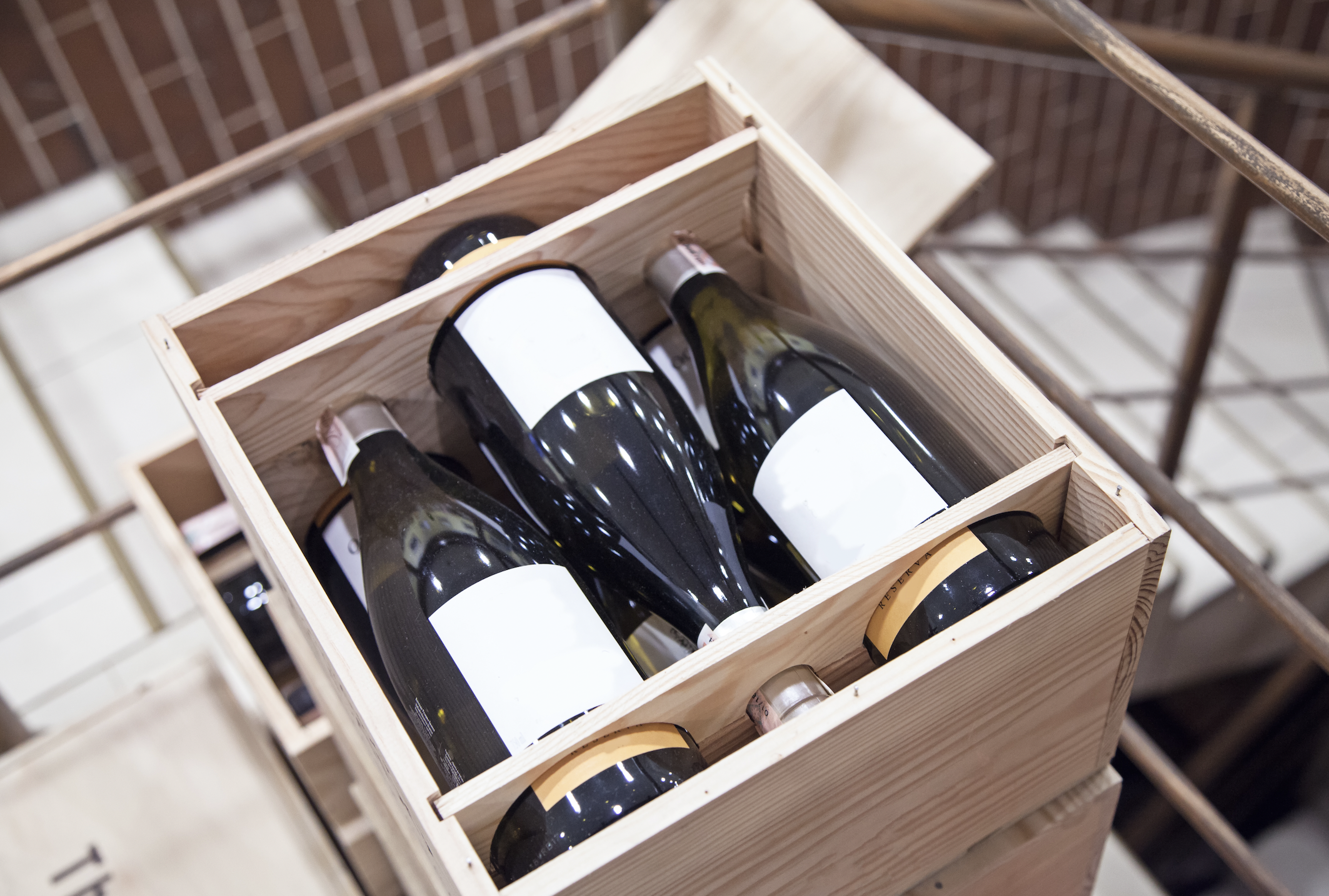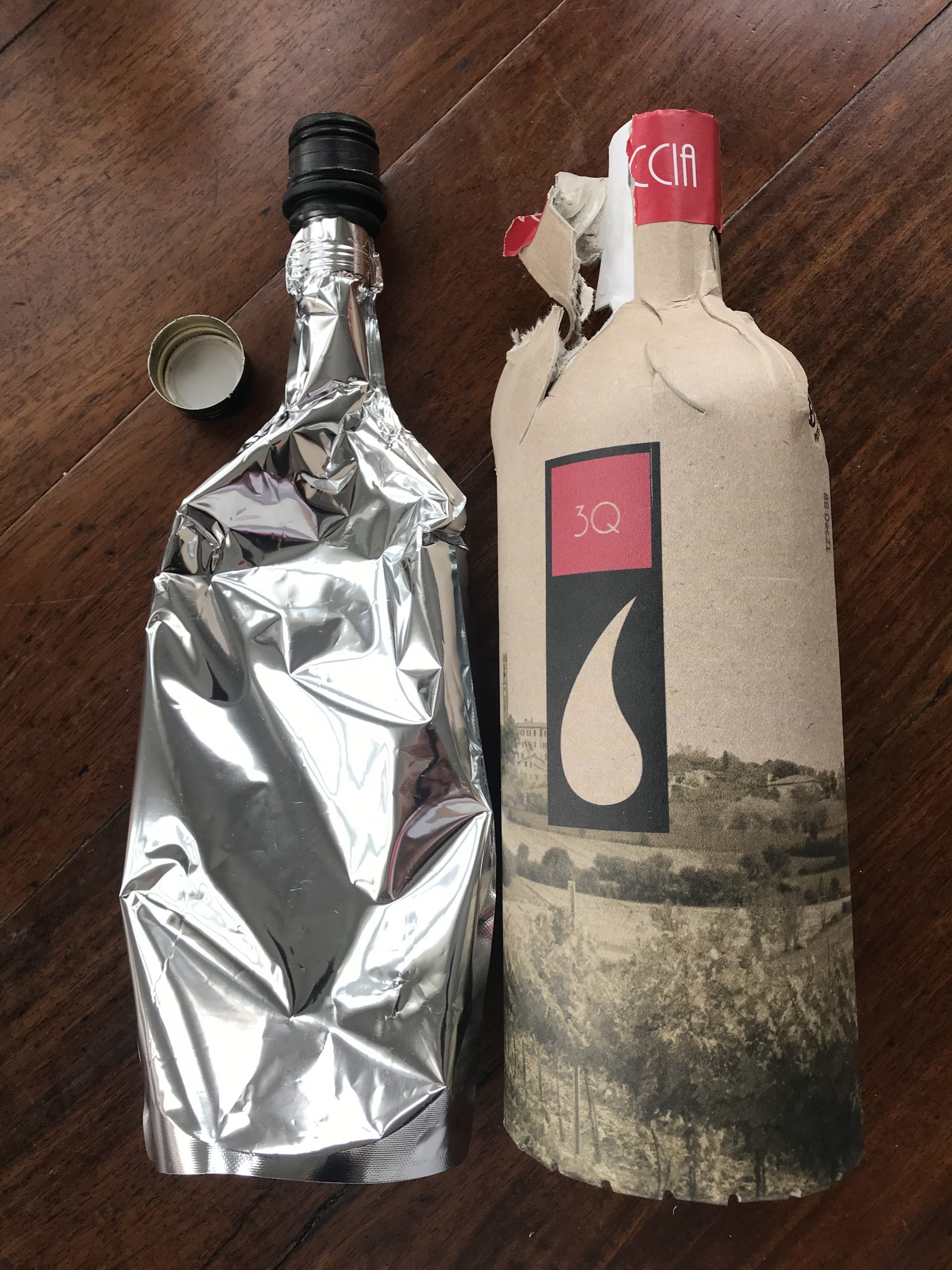New research shows glass bottles considered much more sustainable than bag-in-box
By Patrick Schmitt“Glass bottles have a strong association with sustainability”, and one that is much higher than bag-in-box, according to Wine Intelligence research commissioned by Vinexposium.

At a press conference earlier this month on Wine/Vinexpo Paris, which takes place from 14-16 February next year in the French capital, Wine Intelligence CEO Lulie Halstead revealed a series of key trends taking shape in the drinks industry.
Among these were a set of developments in the alcoholic drinks sector that were accelerated during the recent Covid-era trading period, which Halstead listed under the following headings: moderation, ecommerce, convenience, premiumisation, and home-premise.
Notably, when touching on the issue of sustainability in wine, she said that there had been little change in perceptions during the pandemic, although it had “driven a shift towards localism”.
Considering different areas of sustainability when canvassing wine drinkers around the world, she drew on data to show that organic wine had the “highest opportunity index” among consumers, but this had remained almost identical in 2021 as it had been in 2019.
Meanwhile the idea of “sustainably-produced wine” had actually dropped a little over this two-year Covid-trading period (-2.1), as had the index for Fairtrade (-2.7) and vegan wine (-3.5), while there was small decrease (-0.5) for the idea of carbon neutrality, and a marginal increase (+0.2%) for the concept of “environmentally-friendly wine”.
Summing up, Halstead said, “The evidence says that the consumer momentum towards sustainability in wine has not increased.”
Continuing she said, “Why is this? The key reason is that the consumer already thinks that wine is sustainable.”
She added, “If you talk to consumers, they say, ‘well, wine is natural’; in the consumer’s mind, you squeeze bunches of grapes, put the juice in a barrel and then put it in a bottle.”
So, referring to the issue of promoting organic or ‘natural’ wine, she remarked that the current image of wine “is an opportunity but also bit of a dilemma in wine, because you’ve got a positive sustainable position already, so once you start to layer in and talk about it, then what vibes are you giving your category?”
Looking deeper at the research on sustainability and wine, she pulled up some data to show the percentage of “regular wine drinkers” who agreed with a set of statements, taking in consumers in Australia, Belgium, Canada, Japan, Netherlands, Sweden, Switzerland, as well as the UK and US.
You can see the results in full below, but notably, in first place, was a 55% agreement that glass bottles are a sustainable form of wine packaging, with, in contrast, bag-in-box achieving just 35%.
It’s a notable outcome bearing in mind a small, but increasingly vocal backlash against the glass bottle among some commentators in the drinks trade, who are pushing for producers to house more wine in lighter formats, above all bag-in-box.
But Halstead’s data showed that such a move would damage wine’s sustainable image. And, reiterating her earlier observation around organic wine, she said, “Consumers are not looking at the wine category and thinking this is unsustainable and not an environmentally-conscious category.”
Continuing, she added, “Whereas they will look at a plastic bag and think that it is not a good thing, they will look at wine in a glass bottle and think that’s ok; it’s recyclable.”
Partner Content
Aware that the topic is contentious, it was pointed out by Anne Burchett, who provides marketing support for Vinexposium, that there will be a conference on wine packaging at Wine Paris dealing with the question, ‘Is the glass bottle dead?’
Ahead of such a debate, which db plans to attend, it should be added that bag-in-box and similar formats, such as the so-called ‘paper wine bottle’, which is made the same way as bag-in-box, but shaped like a bottle, suffer from the fact they incorporate layers of material (metallised film, plastic, card) that are hard to separate – a measure required to recycle them.

It is for this reason that they are considered a less sustainable packaging solution than heavier glass.
Meanwhile, glass offers many advantages, particularly for the wine sector, as it is a material that is virtually inert with a long shelf life, and it’s highly resealable – a particular benefit in the move towards refilling bottles rather than disposing of them.
Furthermore, where virgin raw materials are used to make glass, they are usually sourced locally, and they are plentiful: supplies of sand and limestone are not in short supply.
Glass is also widely and easily recycled – there’s no need for any separation – with over 50% of the material entering the UK waste stream currently recycled (the proportion is higher in the EU), and that’s without it being shipped to distant nations (around 2/3s of the UK’s plastic waste is sent overseas).
Finally, should glass eventually enter landfill, due to its inert nature, it will not give off harmful gases, nor, should it end up in the sea, would it have any negative effect on marine life.
So, rather than looking to promote alternatives to glass, it seems that the issue of raising wine’s sustainable credentials should focus on reducing excessive packaging in the drinks sector, as well as reducing the weight of glass in big-production run products housed in heavy bottles, such as sparkling wines.
Alongside this aim should be further efforts to increase the recycled glass content of wine bottles, and, where possible, encourage the refilling of containers in place of disposal.
As shown below, the Wine Intelligence report did not cover the topic of packaging wine in cans, another alternative that is being promoted as more sustainable than the glass bottle.
However, this increasingly popular solution has drawbacks too, including the creation of Hydrogen sulfide inside the can that can occur from a reaction between the wine and the aluminium wall of the format, should the liquid corrode the can’s plastic lining – an issue Jamie Goode dissected on Wineanorak last month.
Attitudes towards sustainability in wine: a global view
- Glass wine bottles are a sustainable form of wine packaging – 55%
- I only trust the sustainability of wines if they have official certification – 43%
- Wine is a more sustainable product compared with other drinks – 42%
- Sustainable wine has less chemicals than other wine – 39%
- I’m willing to pay more for sustainable wine – 37%
- Wine in a bag-in-box is a sustainable form of wine packaging – 35%
- I will always buy sustainable wines when given the choice – 33%
- Sustainable wine is always organically produced – 29%
Source: Wine Intelligence, Vinitrac® 2019 (n=16,704) and 2020 (n=17,852) wine drinkers in Australia, Belgium, Brazil, Canada, Germany, France, Ireland, Japan, Netherlands, New Zealand, Portugal, South Korea, Spain, Sweden, Switzerland, UK and US global wine markets
% who agrees with each of the following statements (n= 9215)
Related news
WWE legend goes viral after Napa wine tasting
Favourite kosher wine 'impossible to find' due to trade war
Piccolo power: why Henkell's small bottle has stood the test of time




